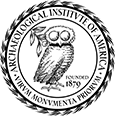
The American Research Institute in Turkey (ARIT) is pleased to announce 2021-2022 fellowship programs for students and scholars based in the U.S. and Canada:
ARIT / National Endowment for the Humanities Advanced Fellowships for Research in Turkey cover all fields of the humanities, including prehistory, history, art, archaeology, literature, and linguistics as well as interdisciplinary aspects of cultural history. The fellowships support applicants who have completed their academic training. The terms may range from four months to a full year. Stipend per month is $4,200.
ARIT Fellowships for Research in Turkey are offered for research in ancient, medieval, or modern times, in any field of the humanities and social sciences. Post-doctoral and advanced doctoral fellowships (PhD candidate) may be held for various terms, from one month up to one academic year. Stipends range from $2,500 to $15,500.
Applications for ARIT and ARIT NEH fellowships must be submitted to ARIT by November 1, 2020. The fellowship committee will notify applicants in late January 2021.
ARIT Summer Fellowships for Advanced Turkish Language in Istanbul offers intensive advanced study of Turkish at Bogazici University during the summer 2021. Participants must have two years of Turkish language study or the equivalent. The fellowships cover round-trip airfare to Istanbul, application and tuition fees, and a maintenance stipend. The application deadline will be in early February, 2021.
For additional information please see the ARIT webpage at http://ccat.sas.upenn.edu/ARIT/FellowshipPrograms.html









